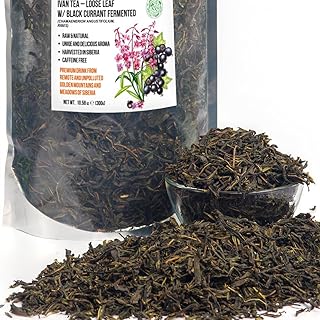Kombucha, a fermented tea, has quietly sparked a revolution in the beverage world. Beyond being a trendy health drink, kombucha’s roots trace back over 2,200 years to ancient China, where it was revered for its health benefits. Today, this microbial miracle has found its way onto supermarket shelves worldwide, appealing to a new generation interested in wellness and healthy living.
As a culinary-trained food enthusiast and sustainability writer, I am fascinated by kombucha’s journey from its ancient origins to its modern resurgence. This fizzy, slightly sour drink is not just a beverage but a symbol of bridging the past with the present, nature with science, and personal choices with social responsibility.
When you delve into the world of kombucha, you discover more than just a drink—it’s a gateway to exploring sustainability, food justice, and the art of fermentation. Its probiotic content promotes gut health, while antioxidants and polyphenols aid in cellular health. However, it’s essential to consume kombucha in moderation and maintain proper hygiene practices, especially when brewing it at home.
One of the remarkable aspects of kombucha is its eco-friendly nature. With a low carbon footprint and the potential for zero waste production, kombucha brewing has become a popular DIY project for many. By making kombucha at home, individuals can reduce their reliance on bottled soft drinks and contribute to minimizing packaging waste.
From a food justice perspective, kombucha offers a glimpse into creating a more equitable food system. With just a few basic ingredients and some patience, anyone can brew kombucha at home, making it an accessible and democratic food option. This inclusivity is crucial in a world where food access is often unequal.
As an advocate for food literacy and sustainability, I believe that teaching children to make healthy choices from a young age is not just a social responsibility but an investment in the future. By fostering awareness of where our food comes from and how it impacts our health and the environment, we can empower individuals to make informed decisions that benefit both themselves and the planet.
The sensory journey of tasting kombucha is a unique experience that often divides opinions. While its tangy, acidic flavor may be an acquired taste for some, many find comfort in its distinct character. Experimenting with different flavors and ingredients while brewing kombucha at home can be a creative and rewarding process, reflecting our connection to nature and the art of fermentation.
In conclusion, kombucha is more than just a health drink—it’s a metaphor for transformation and resilience. Each sip embodies the patience of fermentation, the balance of nature, and the power of change. By embracing kombucha, we embrace the possibility of transformation, both in ourselves and in the world around us.
So, the next time you encounter a glass of kombucha, remember that it represents more than just a beverage—it symbolizes hope, sustainability, and the potential for positive change. Embrace the journey of kombucha brewing, and you may find yourself on a path towards a healthier, more mindful way of living.
📰 Related Articles
- Evolution of Sports Sponsorship: From Ancient Roots to Modern Strategies
- Y2K Fashion Resurgence: Nostalgia Meets Modern Sustainability
- Piano Resurgence: Modern Apps Fuel Adult Learning Revival
- India’s Enchanting Magic Legacy: From Ancient Origins to Modern Challenges
- Citrus Fruit: From Ancient Origins to Modern Challenges






